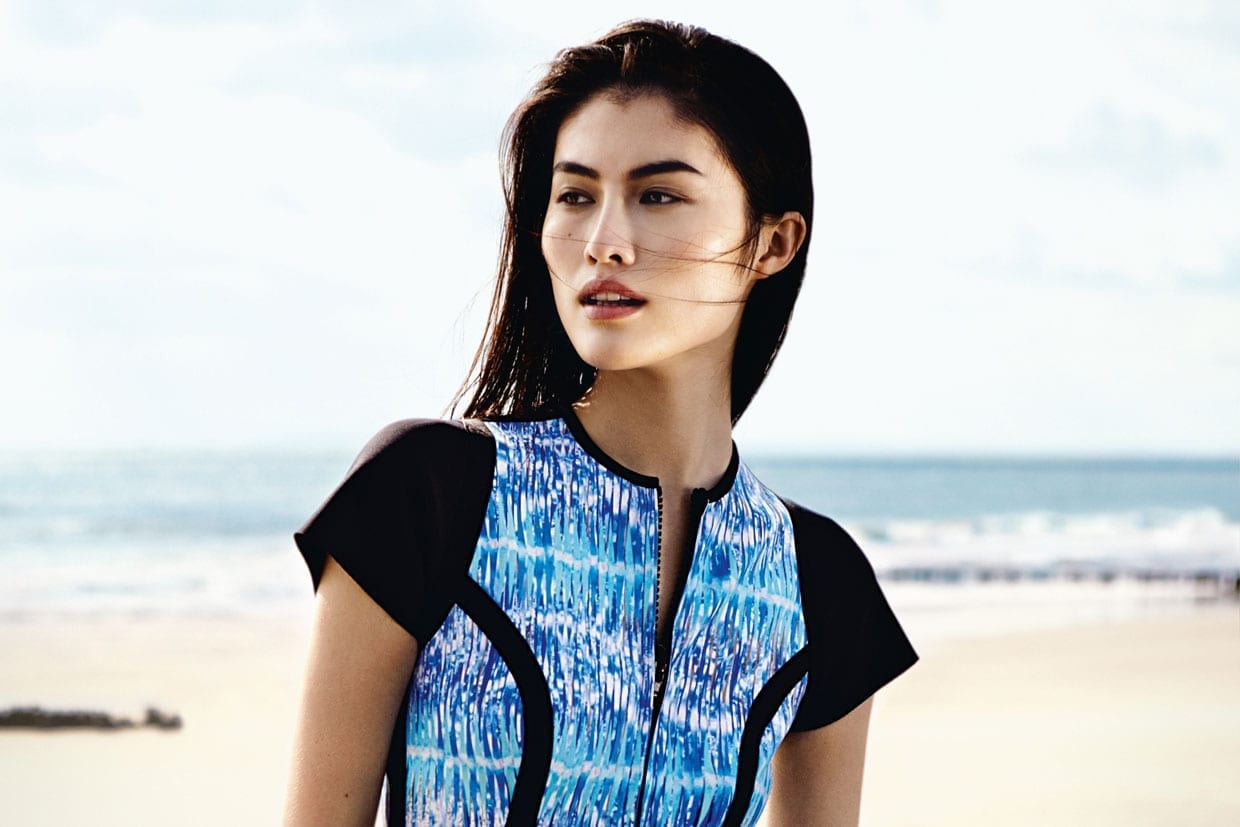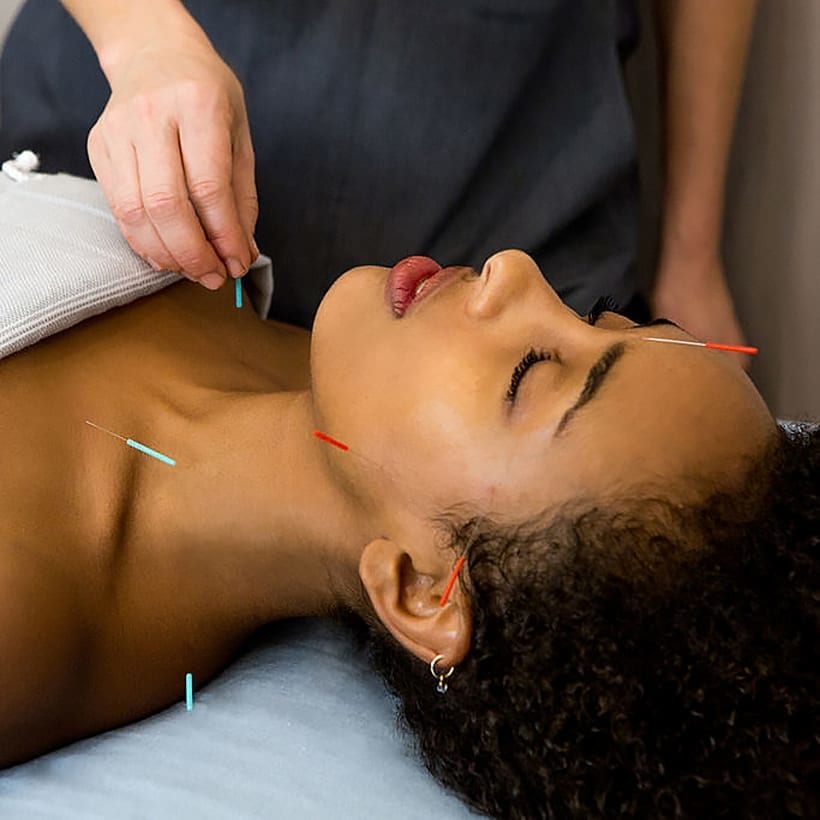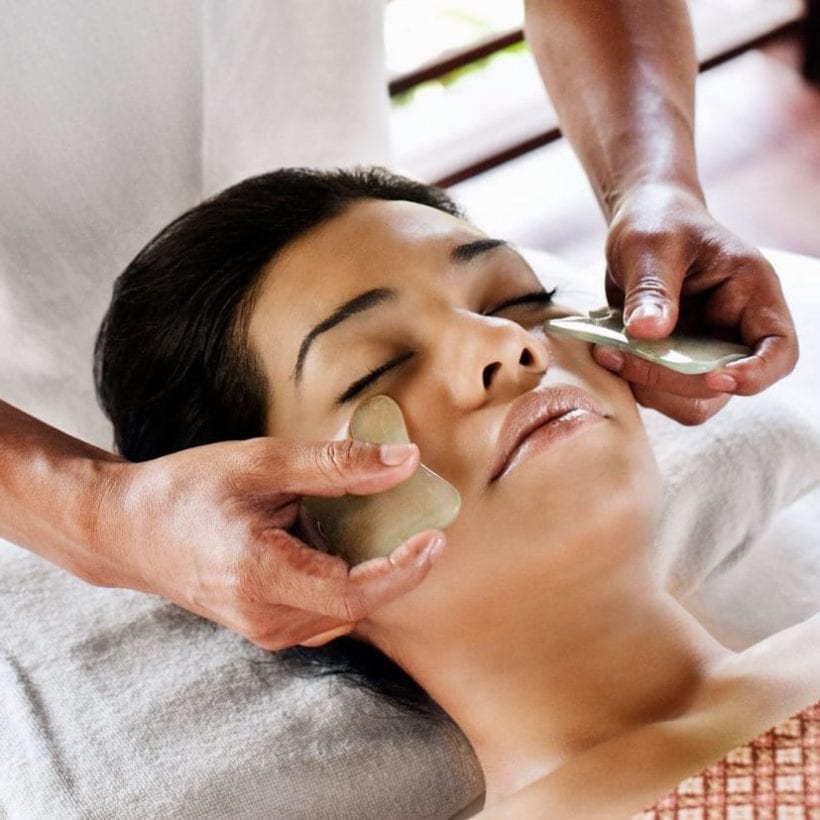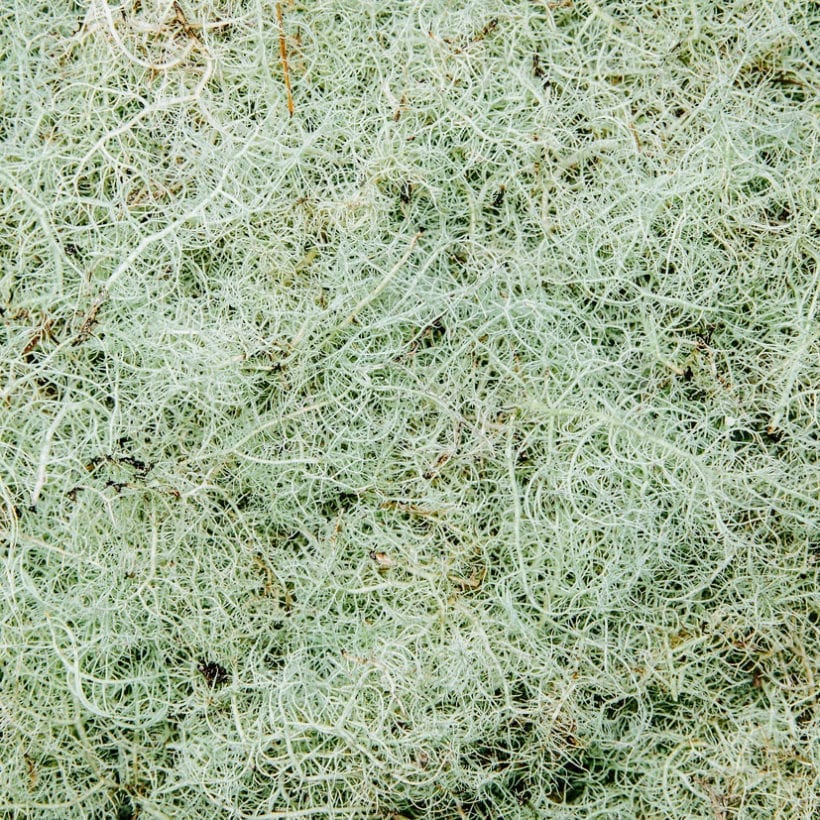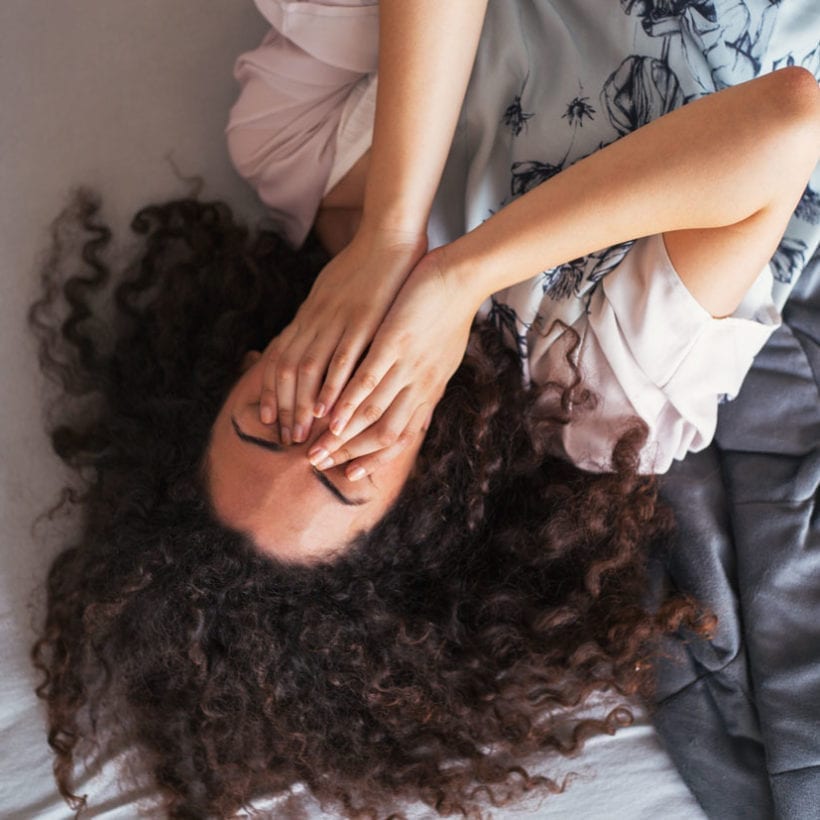Chinese beauty and wellness have long been branded as “niche,” or “alternative.” For the last decade or so, Korean skincare and makeup have dominated beauty stores and YouTube tutorials. Next came Japanese products and trends, popularized by Tokyo it-girls. It has taken a while for the Chinese beauty to join the mix, but the beauty culture steeped in centuries-old traditions is finally here.
And as the Chinese market for beauty products continues to grow — and influence of Chinese celebrities continues to rise — the country’s traditions, products and treatments are beginning to make more of a splash in the American mainstream. In fact, you can hardly scroll through YouTube without watching a gua sha tutorial or check Instagram without finding an influencer touting the benefits of a new herbal powder mix.
It may be fueled by a rapidly shifting global economy, but the rise of Chinese wellness and beauty practices fits with the current American shift from seeing makeup and skincare as the only path to a glowing appearance to a more holistic view — one that mirrors the traditional Chinese approach.
“We think of beauty and wellness as two sides of the same coin,” says Lisa Li, founder of trendy flower infusion tea brand The Qi, which translates loosely to “life force” in English. “How healthy you look on the outside naturally, without makeup, is a reflection of how healthy you are on the inside.”
https://www.instagram.com/p/Bv0IqQeDgfM/
Li, who was born in China but has lived in the US for the last 20 years, says she has seen increased interest in Chinese beauty and wellness practices in the last few years, as American consumers have begun to rethink the fast-paced, Band-Aid solution approach to health and beauty. “We started The Qi because we realized that there are many proven Eastern beauty and wellness traditions that could really benefit all of us in the frantic pace of contemporary living,” she says.
Like social media, politics and more turn American life into what sometimes feels like a high-speed video game, consumers are stepping back and taking note of how the lifestyle is impacting their health — and appearance. It makes sense, then, that traditional Chinese medicine, or TCM, might hold appeal. “Western medicine has been singularly focused on the treatment of acute symptoms, while Eastern medicine has always had a broader focus on healthy living, eating and lifestyle,” Li explains.
Plus, Li points out, old-school practices are having a moment. “I think we have a new generation of consumers that are embracing, rather than dismissing, traditions,” she says. “From DIY kombucha to matcha, we’re embracing the modern reintroduction of traditional rituals and products and finding a new appreciation and value in them.” In a modern world that feels more detached by the minute, practices rooted in years of history feel grounding and calming.
How healthy you look on the outside naturally, without makeup, is a reflection of how healthy you are on the inside.
At the same time, American brands are beginning to adopt Chinese beauty and wellness elements for themselves. Sun Potion, a California company, sells an array of herbs and powders, such as He Shou Wu, that are traditionally used in TCM. Gua sha tools and jade rollers are suddenly everywhere, sold by brands and influencers with minimal ties to China. Just as American beauty standards and practices have spread to Asia, so is Chinese influence now shaping American offerings.
The flower infusions Li sells, she says, have been popular for centuries in China. “Certain flowers have long been used for their holistic healing properties … due to their beauty and potency. They’re packed with powerful antioxidants, minerals and nutrients.” While Americans sip chamomile tea from time to time, our Chinese counterparts are regularly swigging drinks made from rice, lotus and goji berries. The practice boosts inner health and outer appearance. “Drinking rose infusions has amazing benefits for beautiful skin and hair, thanks to its high vitamin C and mineral content,” she says. “It’s a holistic approach to inner and outer beauty.”
But it is not just products that are making their way into the American culture. Liangtse Wellness, a 30-year-old Chinese chain of luxury spas, opened its first U.S. location in New York City this past winter. “As the interest in Chinese culture has grown, we think it’s a great time to introduce our Chinese massage therapies to New York,” says owner DJ Liu. “The surge of interest in traditional treatments such as acupuncture, cupping, and gua sha [has] pushed Chinese beauty and wellness [into] the spotlight.
Liangtse, like The Qi, focuses on slow, steady efforts that add up over time. “We believe that there is no easy or fast way to wellness and beauty,” says Liu. The spa features a variety of treatments using massage, heat and various herbs. Liu is most excited about Moxa Healing Therapy, which uses moxa — aka dried, heated mugwort — to warm certain important points on the head, waist, belly and knees. It is popular at Chinese locations, he says, and is slowly catching on stateside. “We are looking to adapt to the American market and adjust our list of treatments in the meantime.”
But introducing Chinese beauty and wellness to American consumers has taken some work, says Li. “While the tradition has been around for decades, it hasn’t been designed for today’s consumer.” Li has had to set her own quality standards and educate customers on what to look for in a flower infusion. “We source directly from the farms and do our own third-party lab testing for purity and potency.”
Still, she says, fully understanding the Chinese approach to wellness and beauty will take a bigger cultural shift. “I think American consumers … want everything to happen right now, and if it doesn’t, it’s not working. If you don’t gain 50 pounds after one meal, why would you expect to lose that after one ritual? It does not work that way. Everything is cumulative — it takes time.”
https://www.instagram.com/p/BvKS_lpgkH7/
And while Chinese treatments and wellness products are trendier than ever, there is a reason why Chinese makeup and skincare are not ubiquitous just yet. “Beauty products need many years of customer feedback to be successful, especially in skincare,” explains Jennifer Wang, co-founder of Chinese-American online retailer Dealmoon. “Chinese beauty products are in an era where the new brands have not been fully established yet.” She offers two exceptions — Baiqueling, an older company that recently rebranded, and Forbidden City, which creates beautifully-packaged lipstick series — but says that she thinks Chinese companies need time and more press before their products start appearing in American stores. In fact, Western, Korean and Japanese products currently dominate China’s rapidly growing beauty market, though she says that could change soon. “There is an increasing demand in China for beauty products, so I think there will be a lot of opportunity for Chinese brands in the near future, especially in cosmetics, where it tends to be easier to establish themselves,” she says.
This American focus on wellness, Li says, coincides with a growing acceptance of Chinese culture. “Maybe not all parts of Chinese culture, but there’s enough awareness now … The recognition and certification of acupuncture was definitely a part of that,” she says. Many of the treatments, products and ingredients that are popular now have been around since the earliest Chinese-American immigrants — they’ve just been overlooked or stayed within certain communities. Now, as Americans look to other cultures for a different way of doing things, those same practices are becoming more commonplace.
As the two beauty cultures grow more intertwined, industry leaders only see growth from here. Wang predicts that the next Chinese import will be another wellness practice: herbal soups. “A lot of Chinese girls, especially in Canton, cook different soups with Chinese herbs to make sure their body is being taken care of from within,” she says. Li expects growing interest in flower infusions, while Liu believes heat therapies will only become more popular.
One thing is for sure: This is only the beginning.
We only recommend products we have independently researched, tested and loved. If you purchase a product found through our links, Sunday Edit may earn an affiliate commission.
